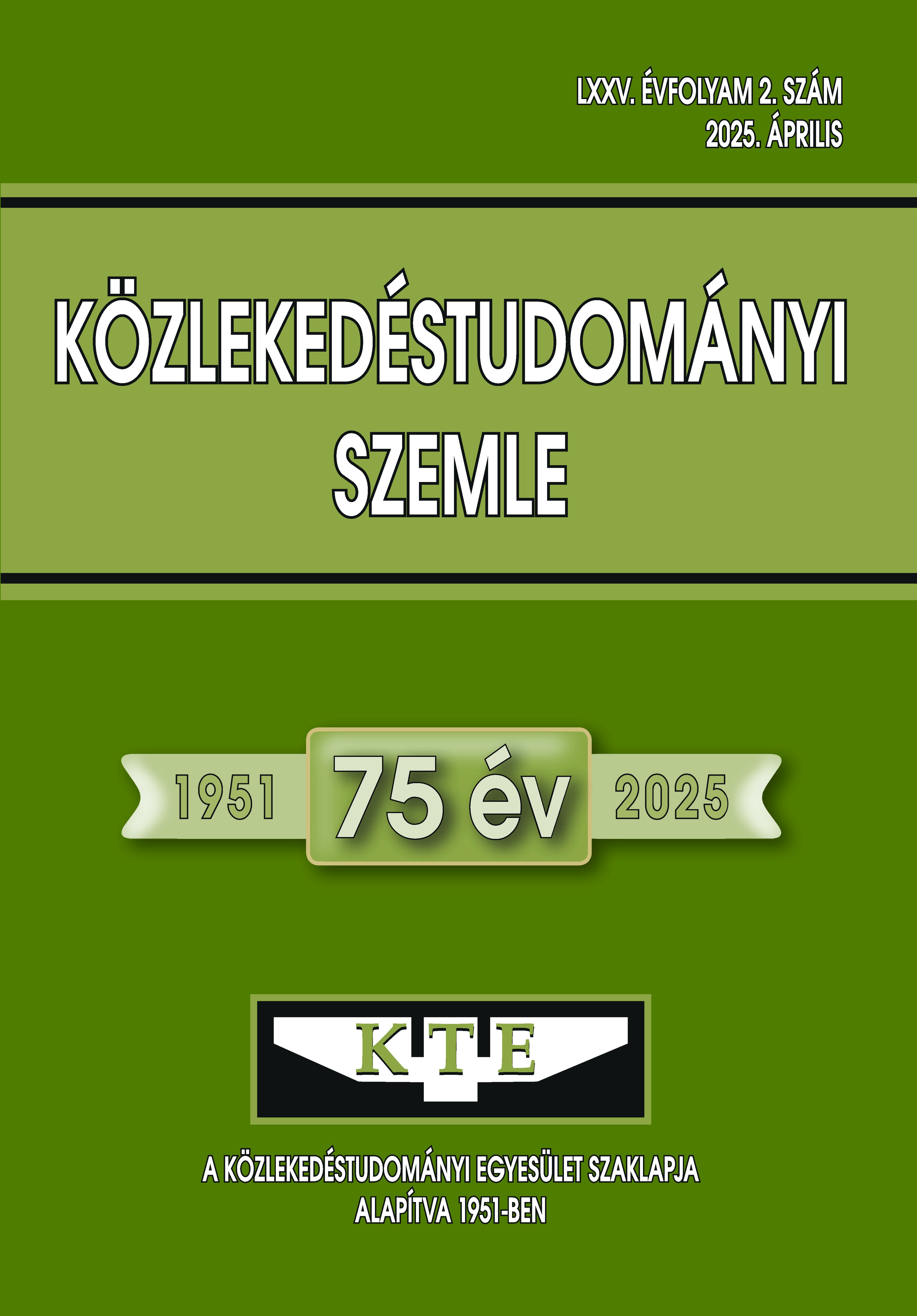The transformation of travel habits in domestic intercity bus transport due to the pandemic
Abstract
We thought that - after 5 years - enough time had passed since the pandemic crisis to look back on the effects mentioned in the title. The COVID-19 pandemic and restrictive measures introduced by the state as a result of it forcedly changed the travel habits of citizens using public transport in Hungary (also). Public service enterprises had to take quick and effective measures in order to preserve their economic stability. From today’s perspective, it can be concluded that the enterprises
acted according to the situation and their operation was not collapsed due to the crisis caused by the unknown disease in their operation. To understand the changes in passenger behaviour and the transformation of travel habits caused by the pandemic, we used qualitative and quantitative research methods for the first three years. The qualitative research was conducted in the form of in-depth interviews with the managers of 5 companies with intercity public service contracts, while the quantitative data collection involved the collection of 330 responses to a questionnaire survey. The result show a signicifanct decrease in passenger numbers and loss of revenue for intercity public bus transport in the first three years, including the social policy fare subsidy. Despite the preventive precautions taken by the service providers, the confidence of intercity bus transport has decreased significantly, and in parallel, individual modes of transport (own car, bicycle, walking) have strengthened. At the same time, looking back to recent events, it can also be stated that it took only 3 years to restore the previous passenger numbers, and in fact, today (although primarily with the introduction of tariffs and fares, their validity aspects and area-based passes) it has even been exceeded.
Articles published electronically are open access (OJS), freely available online and can be downloaded. Authors of articles are not charged any publication or publishing costs (APC). Users have the right to read, download, copy, print, and search the articles, or share the full text with a link.
Authors must declare that their submission has not been previously published in another journal, that financial support has been acknowledged, and that the list of references is complete and accurate, including specification of URLs and DOIs (if available). When submitting a draft article, each author approves the submitted version. Authors guarantee that the article is their original work. Authors are required to participate in the peer review process, follow the advice of reviewers, meet the prescribed deadlines, and, if any, withdraw the submission or correct errors.
All submitted articles are subject to peer review, where the editors request an independent evaluation from at least one expert, ensuring that the reviewer(s) have no conflicts of interest with the authors. The final decision is made by the Editor-in-Chief, who takes into account the evaluations and the suggestions of the editors. The editors and reviewers treat the submission confidentially.
The publisher and editors are committed to maintaining high ethical standards and to preventing publications that involve research misconduct. They follow the COPE guidelines on such ethical issues.
The authors retain copyright and grant the journal the right of first publication under the Creative Commons License (https://creativecommons.org/licenses/by-nc-nd/4.0), which allows others to share the work, while acknowledging the authorship of the work and the first publication in the journal.
The journal archives all published articles, and the journal's owner, the Hungarian Society of Transportation Sciences, will continue to operate the database even if the journal ceases to be published.















